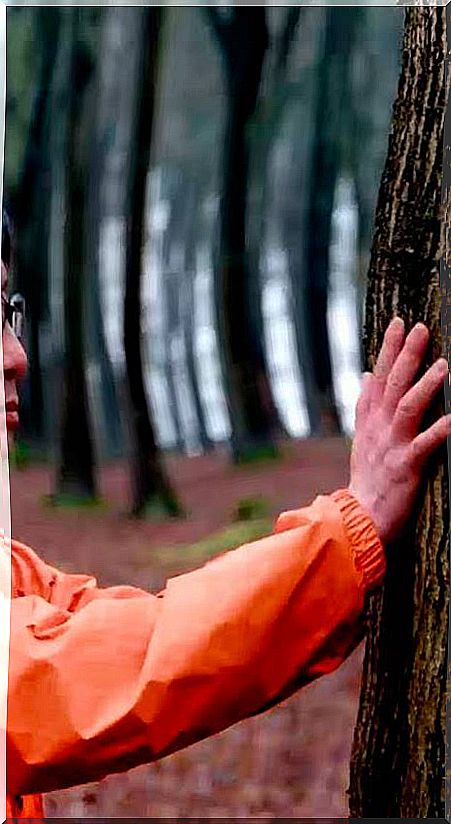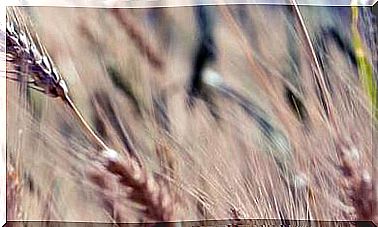“Forest Baths Activate Our Defensive Cells”
Dr. Qing Li proposes shinrin-yoku or forest baths as therapy, because walking among trees is good for us: it boosts the immune system, reduces the stress and lowers blood pressure.

Dr. Qing Li is an immunologist and a great world expert in shinrin-yoku , forest baths or forest medicine. He has written The Power of the Forest (Roca Editorial), which invites us to connect with nature through the five senses.
Its objective is to rediscover nature to the people who live trapped by the artificiality of urban life, so that they can take advantage of its benefits and regain health.
Qing Li, the doctor who prescribes forest baths for his patients
Originally from China and living in Japan, Qing Li is Secretary General of the International Society for Nature and Forest Medicine and a professor at Tokyo Medical University.
– When did you become interested in forest medicine?
–In 1988 I visited the island of Yakoshima, which has a wonderful forest. It is a small island, in the south of Japan. I went with a group of friends and we spent the night outdoors, in tents. I remembered things a lot as a child, when I played in the forest with animals, which connected me with the feeling that there is something in nature that affects us positively.
At the time of that excursion, I had just graduated from Medicine. I was starting my career as a doctor, researching the harmful effects of pollution on our health, and the results were alarming. Later, in 2002, at a time when there was a particular concern on the part of the government to improve health problems caused by pollution and stress, I received a grant and began research on forest medicine.
– What happens in my body when I come into contact with the forest?
–When we go into the forest we calm ourselves through the five senses. Using our eyes, we contemplate the marvelous landscape: the green color of the trees, the brightness of their tops, their flowers, of different shades, butterflies and insects … Through our ears we hear the song of the birds or the sound of the wind. .
Through the nose we breathe the pure air and the aromas of the forest, rich in phytoncides, volatile substances that are enormously positive for our health, and with our hands we touch the trees, moss, ferns, green grass … and with our feet, the cold water of the river, feeling more vital.
All this activity calms us, relaxes us and frees us from stress.
– Are the effects biochemical?
–A forest bath of between 2 and 4 hours for two days can increase the activity of our white blood cells by 40% during the next 30 days. In addition to having a higher oxygen concentration, the forest air is full of phytoncides, volatile compounds that protect trees from bacteria, insects and fungi.
A forest bath for 2 to 4 hours for two days can increase the activity of our white blood cells by 40% in the next 30 days.
–How do these substances work?
–Some of the most important are alpha-pinene, beta-pinene and d-limonene. Phytoncides increase the number and activity of human natural killer defensive cells and enhance the activity of anticancer proteins. In addition, the levels of stress hormones are reduced, the hours of sleep increase and the markers of anxiety, anger, fatigue and confusion are reduced.
Other research has shown that forest baths significantly lower blood pressure and heart rate.
–In your book you refer to Mycobacterium vaccae , a bacterium found in the earth and that stimulates the immune system.
This is a study by Dr Mary O’Brien, an oncologist at the Royal Marsden Hospital in London. Dr. O’Brien was conducting an experiment to see if an injection of M. vaccae boosted the immune systems of lung cancer patients. He verified that this bacterium works as an antidepressant, improving the emotional quality of life of patients, making them feel more animated, with a higher energy level, with better cognitive functioning …
In a later experiment with mice, it was found that the neurons that are activated by the injection of M. vaccae are those associated with the immune system, suggesting that there is a very close connection between this system and our emotions. In other words, these microbes that are found on the ground, and that we breathe when walking through the forest, stimulate our immune system, which makes us feel better.
–So, forest baths affect our mental health?
–They promote clarity of ideas and creativity and make us more kind and generous. A study from the University of Michigan found that people gained 20% more memory and attention after taking a walk through the trees. The same did not happen when they walked through the city.
– What are the most suitable rituals to get the most out of the forest bath?
–First you have to make a plan before going to the forest so as not to get too tired, because if you are tired the forest bath will not be very effective. You have to walk slowly, see how far you can walk, take a route that you can take. I recommend doing 2.5 km every two hours or, if one day you do 4 hours, you can travel 5 kilometers, resting from time to time, drinking water, sitting down …
It is very important to use the five senses. Be present, take a deep breath, listen to the sounds …
– What does it depend on whether a forest is more or less curative?
–A forest will be more curative the thicker it is and the older the trees are, because the more phytoncides they will exhale. Another important element is that the weather is good, since in the heat the trees emit more natural volatile compounds. Noon is the ideal time, because it is when the tree provides more oxygen.
The thicker the forest and the older the trees, the more phytoncides it will breathe out.
An ideal planning would be to walk from 10 in the morning until 12, then have a one-hour picnic and continue the route for another two hours, from 2 to 4 p.m. In Japan this would be the deadline because later we could meet a bear and be in danger.
– Does it affect whether the forest is wet or dry?
–After the rain the conditions are very favorable, since the water wets the leaves and increases the aroma of the trees. Other aspects to consider are that the forest is in a place as far as possible from sources of pollution or noise and that, although it is leafy, it is bright.
–You explain in your book how in 1982 a national health program was created to practice forest baths and how the Akazawa forest was the first designated for shinrin-yoku . Why was this initiative taken?
– At that time there was a phenomenon that was a wave of stress due to technology. The perfectionist spirit of the Japanese led them to work overtime without measure to finish the job and this led to an increase in deaths from overwork, which in Japan is known as karoshi.
The Japanese government decided to reduce overtime and started shinrin-yoku , because it thought that getting in touch with nature would restore health to people. These two actions were very effective.
–Apart from being places of health, you define forests as natural sanctuaries.
-Buddhism and Shintoism, the two great religions of Japan, are closely linked to forests. It is not uncommon to find people praying or meditating in the forest, as these vast green spaces are thought to constitute the realm of the divine, but since 2003 forests have been scientifically shown to have beneficial effects on our health. So, what was previously considered only from tradition today can also be understood from science.
Since 2003, forests have been scientifically shown to have beneficial effects on our health.
–A study has shown that d-limonene is more effective than antidepressants. Do you recommend putting diffusers at home with essential oils to manage stress?
–The best thing is to go to the forest, without a doubt, because there we can walk, relax and use the five senses, but smell also has potential. Essential oils can help us a lot, especially in urban environments, but it is best to have direct contact with nature.
– What are your favorite forests?
–My favorite forest base is Akazawa. It is a Japanese cypress forest, very aromatic and with a very good quality environment. I also like the Tianmenshan National Forest Park (China), where Avatar was filmed, and in Finland I was struck by the world’s first themed forest dedicated to wellness, near the Ikaalinen Spa: there are signs along the slopes to draw attention to the hiker to observe the surroundings, relax and put yourself in a good mood. you use the five senses. Be present, take a deep breath, listen to the sounds …









